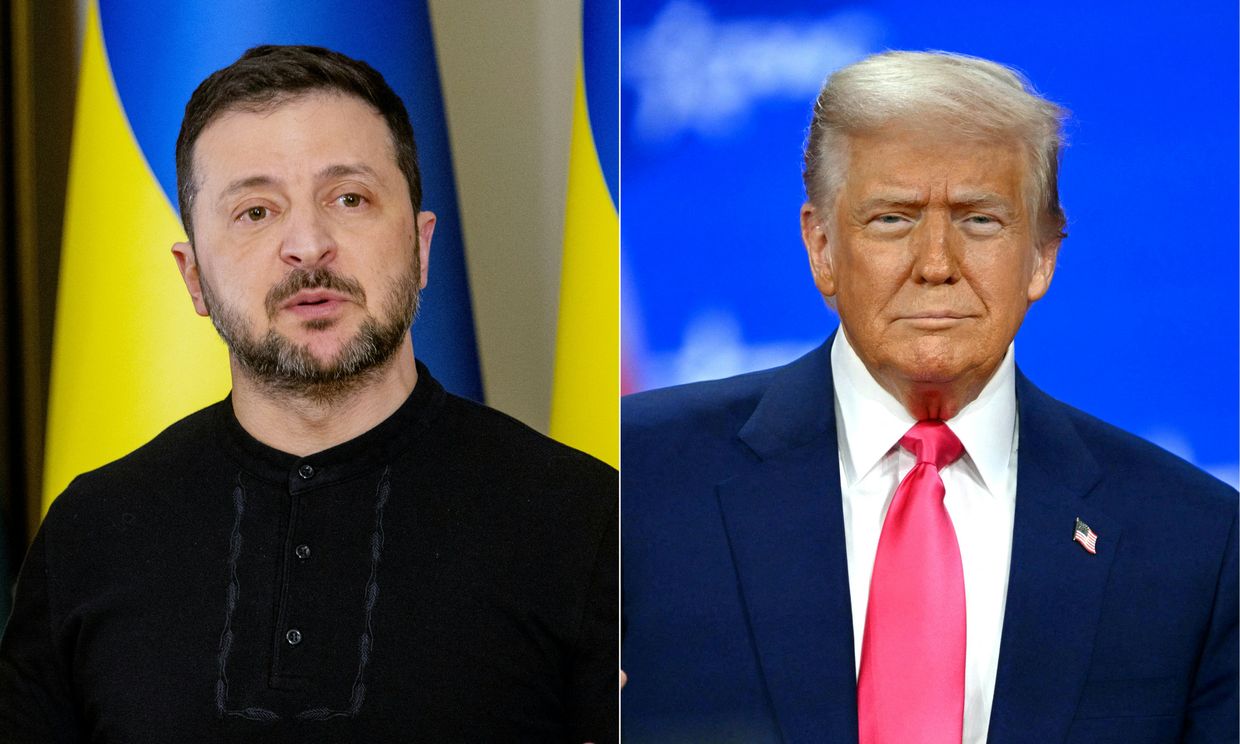No security guarantees in US minerals deal, to be discussed later, Zelensky says

Security guarantees Kyiv is seeking are not specified in a mineral deal agreement with Washington, but will be discussed in future rounds of negotiations with the U.S. and other allies, President Volodymyr Zelensky told journalists on Feb. 26.
The deal, finalized on Feb. 25, follows weeks of negotiations that strained relations between Zelensky and U.S. President Donald Trump. Washington initially proposed three versions, with Kyiv rejecting the first two over the absence of security guarantees.
The latest version of the agreement, which was obtained by the Kyiv Independent, aims to create a fund to which Ukraine will contribute 50% of proceeds from the "future monetization" of state-owned mineral resources, including oil, gas, and logistics infrastructure.
While it does not contain concrete security guarantees, the agreement states that the U.S. government "supports Ukraine's efforts to obtain security guarantees needed to establish lasting peace."
"I asked for an understanding that all this is part of the future security guarantees of Ukraine," Zelensky said of the deal, adding that he wanted "at least a sentence about security guarantees for Ukraine to appear in the agreement — and it did appear."
Trump also on Feb. 26 said that Europe, rather than the U.S., would be mainly responsible for providing security guarantees to Ukraine.
"I'm not going to make security guarantees beyond very much — we're going to have Europe do that because we're talking about Europe is their next door neighbor," he said during a cabinet meeting at the White House.
Trump added that the U.S. would ensure "everything goes well" and, as anticipated, would collaborate with Ukraine on rare earth minerals.
"We very much need rare earth — they have great rare earth," he said.
It's unclear whether Trump's reference to Ukraine's "rare earth" was meant to indicate the country's critical minerals or other resources, as Ukraine possesses only small deposits of rare earths.
Earlier versions of the deal reportedly included a controversial clause requiring Ukraine to repay U.S. aid at a two-to-one ratio, meaning for every dollar received, Kyiv would have to return two.
"From what I was told, the 'two-to-one' provision is not there, and thank God," Zelensky told reporters at the meeting.
The president also emphasized that Ukraine would not assume debt under the agreement. "Despite what is being said in the media, the agreement does not include any $500 billion debt, $350 billion, or $100 billion. Because that would be unfair to us," he said.
The latest draft of the agreement drops earlier U.S. demands for a $500 billion claim over Ukraine's natural resources, which had been a major sticking point.
This agreement will be followed by a more detailed Fund Agreement, which will define the terms of the Reconstruction Investment Fund, jointly managed by Ukraine and the U.S. The Fund Agreement will require ratification by Ukraine's parliament.
U.S. President Donald Trump confirmed that Zelensky will arrive in Washington on Feb. 28 to sign the mineral agreement.












